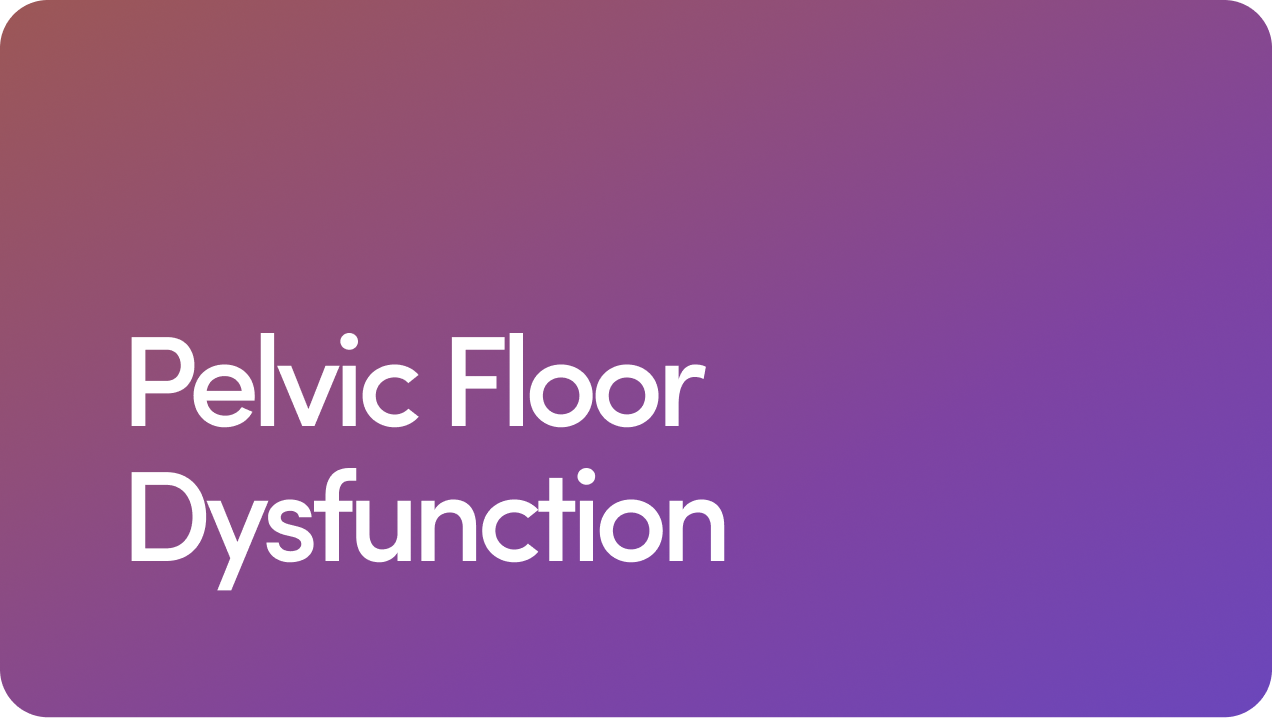Content
Your sex life, your way
I Think My Partner Is Having an Emotional Affair

There’s no sugarcoating the fact that getting cheated on stinks. For many, the breach of trust is a relationship-ruiner. It’s also a notably common occurrence. In a recent YouGov® poll, one in three Americans admitted to cheating — whether physically, emotionally, or both — while in a monogamous relationship. But what is an emotional affair?
While most people have a clear understanding of what a physical affair entails, such as sex or intimate physical contact, an emotional affair may be a bit harder to define.
To shed light on what emotional cheating really looks like, we turned to Jillian Hamilton, host of the Cheating: When Love Lies podcast, which focuses on questions regarding infidelity. Below, learn the key signs of emotional infidelity, explore why people are drawn to these non-physical affairs, and get practical advice on how to confront a partner who you believe to be emotionally straying.
Content
What Is an Emotional Affair?
Emotional affairs may not involve sex and often begin as platonic friendships, but can still threaten the stability of a committed relationship. “Emotional affairs are romantic attachments without physical intimacy,” says Hamilton.
In these kinds of relationships, the committed person may develop intimate feelings or engage in behaviors that are typically reserved just for their partner. Such behaviors may include sharing intimate thoughts, feelings, and secrets typically reserved for a romantic partner. It could also look like spending more time than usual with the suspected third party, communicating more frequently with them, or otherwise feeling the need to hide this relationship from their main partner.
Emotional affairs aren’t just reserved for monogamous arrangements; they can also happen in the context of open relationships. For instance, you and your partner may allow each other to have sex with other people. In this case, the open relationship focuses on unions that are strictly sexual. In this case, an emotional affair can still occur if one of you starts to have romantic or intimate feelings for the other person.
According to Hamilton, emotional affairs often start online because some people find it much easier to share personal thoughts and feelings from behind a computer screen. “It’s not surprising that people in unfulfilling romantic partnerships seek out emotional affairs online. Because these relationships are primarily digital, the partners have 24/7 access to each other, and they tend to communicate endlessly throughout the day,” she says.
Connecting online is also convenient. She says texts and DMs via social media are a quick, low-lift way to communicate. “Often, a digitally connected emotional affair partner will refuse to engage in real life and has little desire to put in the effort it takes to show up,” she says. “The emotional affair is easier because it only requires you to say nice things and not actually do anything that demonstrates love and care.”
Hamilton says people engage in emotional affairs for three main reasons:
Distraction. A person may have an emotional affair to distract themselves from issues in their primary relationship. A 2008 study that explored the motivations behind emotional involvement in affairs found that people typically cheated when they felt unhappy with the level of intimacy in their main relationship. Additionally, emotional cheaters sought the short-term self-esteem boost that can come with having an affair.
Validation. A person may start an emotional affair because they want to feel validated and seen by someone whom they deem desirable. In the book Chasing Masculinity: Men, Validation, and Infidelity, sociologist Alicia M Walker, PhD, explores this dynamic through interviews with men who used the affair-oriented website Ashley Madison. According to her findings, these men were often seeking validation and emotional support—not just physical encounters—to affirm their personal sense of masculinity. Interestingly, women on the site were more commonly driven by the pursuit of sex and orgasm than emotional validation.
Escape. A person may seek out an emotional affair to ease the pain of personal trauma, such as childhood neglect or abandonment. An emotional affair allows a person to escape into a dream world of perceived love and romance without having to invest time or money like they would in their main relationship. According to research, risk factors for infidelity include psychological distress, an insecure attachment orientation, and coming from a family where infidelity was present.
There are a few warning signs you can look out for when it comes to emotional cheating. Sometimes they can be subtle.
Hamilton calls out the following behaviors:
Changes in phone usage. “One of the biggest signs of an emotional affair is a partner who vehemently protects their phone or changes their password, either on a phone or computer,” says Hamilton. “The phone is a major form of communication in most emotional affairs, so observing any changes in phone usage is a sign.”
Aggression. She says another common sign is aggression. “If the cheating partner feels emotionally validated and loved by their affair partner, they will begin to resent everything they perceive as a deficit in the primary partner. In other words, the cheating partner will silently resent you because you don’t live up to the loving, kind, thoughtful, ever-present person their emotional affair partner seems to be. That’s when contempt and resentment set in, and you may start to see your cheating partner act aggressively toward you as a means of punishing or blaming you.”
While different people may have different ideas on what an emotional affair entails, it may also include the following behaviors:
Frequently communicating or spending a lot of time with a third party beyond what's necessary for work, school, or shared activities
Keeping the relationship secret or hiding interactions from a partner
Sharing intimate details about one’s life or marriage with a third party, especially information that hasn’t been shared with one’s partner
Confiding in a third party instead of one’s partner, particularly during times of stress or emotional need
Looking forward to spending time or talking to the third party more than one’s partner
Sending flirty or emotionally intimate text messages
Feeling emotionally needed by the third party, or needing them in return
Becoming defensive when one’s partner questions the relationship
How to Address an Emotional Affair
If you suspect your partner is having an emotional affair, but you’re not sure, you should approach the conversation carefully. Hamilton says the easiest strategy is to simply say, “It feels like things have changed between us and you’re not behaving the way you used to toward me.” From there, you can directly ask, “are you having an affair?”
But don’t expect a straight answer right away, says Hamilton. Even if there is cheating, it’s “more than likely the cheating partner will deny it,” she says. “The betrayed partner [may] accept the denial because it’s easier than actually confronting the possibility of being lied to.”
Still, she says the betrayed partner may harbor a sinking feeling that something is desperately wrong, leading to suffering in silence until they either press the issue or start snooping around for clues to support the original suspicion of their partner cheating. “Getting to the truth is rarely a one-and-done conversation,” says Hamilton. “Expect that it will take time to get all the information surrounding an emotional affair.”
It can be difficult to recover from an emotional affair because once trust is broken, it puts every aspect of the relationship into question. However, rebuilding trust is possible, particularly with the help of couples counseling.
Going to therapy may help reveal why the affair happened in the first place and what might have been missing in the primary relationship. It also provides a safe space for open communication between partners so they can rebuild their emotional bond with guidance.
Individual counseling and self care are also profoundly important. “Self-esteem can really slip after a [partner has an] emotional affair — sometimes even more than after a physical one, because you feel that your cheating partner has a deep emotional connection with someone other than you. It wasn’t just about hooking up,” says Hamilton.
Regardless of the form of cheating, some research has shown that betrayal by a romantic partner could harm your mental health and overall well-being. Between 30 and 60 percent of betrayed individuals experience symptoms of post-traumatic stress disorder (PTSD), depression, and anxiety.
Self care can be helpful for rebuilding self-esteem, and practicing self care can mean anything that feels good and builds you up. Some examples may include taking a class, exercising, fostering close friendships, or putting extra effort into your career. All of this can help restore a sense of self-worth that is often lost after an emotional affair.
Moving forward from an emotional affair, you may also want to make some changes to your relationship in order to prioritize emotional intimacy. Some ideas include:
Setting boundaries. Talk openly with your partner about what counts as emotional infidelity and agree on boundaries with friends, coworkers, or anyone else outside the relationship.
Getting better at talking it out. Have frequent, honest conversations about your emotional connection, needs, and how you're both feeling in the relationship.
Prioritizing quality time. Treat your quality time as sacred and protect it at all costs. Make time for meaningful shared experiences, including date nights and deep conversations.
Being vulnerable. Practice being vulnerable by frequently sharing your feelings, concerns, and needs directly rather than bottling them up or turning to someone else.
Expressing gratitude often. Let your partner know what you love and admire about them to help them feel valued and validated.
Maintaining physical intimacy. Regular physical connection is crucial, and it doesn’t always mean sex. Affectionate touch and non-penetrative sex can help keep your emotional bonds strong.
Be aware of warning signs. If you or your partner start forming overly close emotional ties with someone else, recognize those signs and address them early.
Seek support. Couples counseling or relationship workshops may help you build tools to strengthen your connection before problems set in.
A Final Word on Emotional Affairs
Discovering your partner is having an emotional affair can be hard, but it doesn’t have to be the end of your relationship if you don’t want that. Working with a therapist and strengthening your communication skills can help you move forward if you’re both willing to put in the work. Here’s what we know:
Emotional infidelity differs from physical infidelity, but it can still damage your primary relationship. Emotional affairs are romantic attachments without physical intimacy. These dynamics can include behaviors like spending excessive time with a person other than your partner; sharing thoughts, feelings, or secrets with this person; and feeling the need to hide details of the relationship from your partner.
Emotional affairs start for various reasons. These reasons could include dissatisfaction with the current relationship, a desire for validation, or a way to escape trauma.
Emotional affairs don’t have to lead to breakups. There are ways to overcome emotional affairs if you’re both willing to put in the work. Seeing a therapist with your partner can be a huge help here.
Looking for more support and resources? Read this guide on how to be more sexually confident, get tips on how to rekindle a relationship, and find out how to spice up your sex life.
6 Sources
- Allen EL, et al. (2008). Not all affairs are created equal: emotional involvement with an extradyadic partner. https://pubmed.ncbi.nlm.nih.gov/18396729/
- Lonergan MI, et al. (2021). Is romantic partner betrayal a form of traumatic experience? A qualitative study. https://pubmed.ncbi.nlm.nih.gov/32533575
- Meszaros JU. (2021). Chasing Masculinity: Men, Validation, and Infidelity. https://journals.sagepub.com/doi/10.1177/00943061211062960z?icid=int.sj-abstract.similar-articles.9
- Palanci JE. (2020). Healthy Boundaries Relationship Model. https://researchopenworld.com/wp-content/uploads/2020/02/PSJY_2020-Jennifer-Palanci.pdf
- Rokach AM, et al. (2023). Love and Infidelity: Causes and Consequences. https://pmc.ncbi.nlm.nih.gov/articles/PMC10002055/
- YouGov®. (2022). How many Americans have cheated on their partners in monogamous relationships? https://today.yougov.com/society/articles/43605-how-many-americans-have-cheated-their-partner-poll
Editorial Standards
Hims & Hers has strict sourcing guidelines to ensure our content is accurate and current. We rely on peer-reviewed studies, academic research institutions, and medical associations. We strive to use primary sources and refrain from using tertiary references. See a mistake? Let us know at [email protected]!
This article is for informational purposes only and does not constitute medical advice. The information contained herein is not a substitute for and should never be relied upon for professional medical advice. Always talk to your doctor about the risks and benefits of any treatment. Learn more about our editorial standards here.
Felix Gussone, MD
Education
Doctor of Medicine - Ludwig-Maximilians-University, 2014
Other Certificates & Certifications
Board Certified Medical Affairs Specialist - Accreditation Council for Medical Affairs, 2024
Specialties & Areas of Focus
General Practice
Previous Work Experience
Manager, Medical Content & Education - Ro, 2021–2024
Senior Health Editor - Medium, 2019–2021
Associate Medical Producer - NBC News, 2015–2019
Production Assistant - CNN, 2015
Media Mentions & Features
Dr. Gussone has contributed widely to consumer health news media, including NBC News TODAY and NBC Nightly News, and has written about his own weight loss journey for CNN.
Why I Practice Medicine
Dr. Gussone discovered his passion for creating medical content and educating the public about health while working with CNN’s Dr. Sanjay Gupta. He realized that the media could deliver essential health information to millions, surpassing the reach of one-on-one care in a clinical setting.
Hobbies & Interests
Scuba diving, traveling, cinema, and perfume making
Related Articles
Related Conditions
 Erectile Dysfunction
Erectile Dysfunction
 Premature Ejaculation
Premature Ejaculation
 Low Testosterone
Low Testosterone
 Retrograde Ejaculation
Retrograde Ejaculation
 Pelvic Floor Dysfunction
Pelvic Floor Dysfunction
 Anorgasmia
Anorgasmia